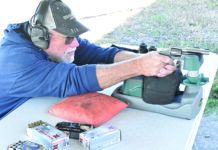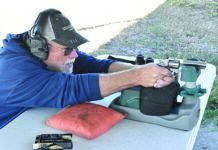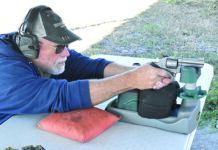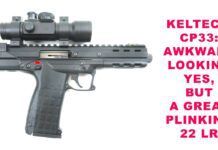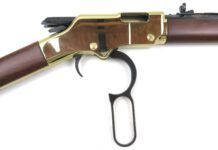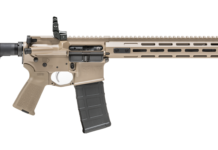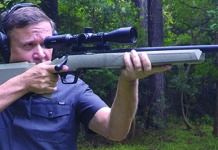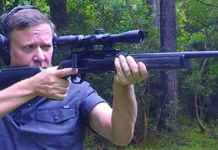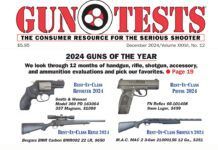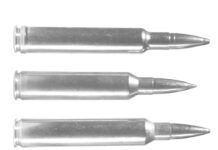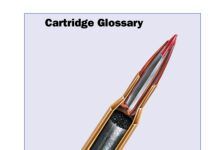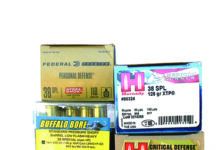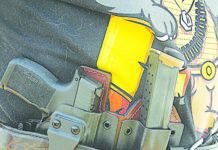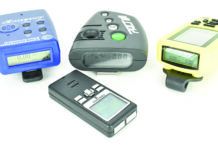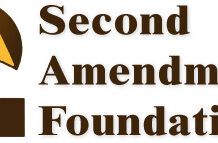Shooters who are thinking about buying a Fabrique Nationale Herstal SA (FN) FNC rifle should be aware of a recent ruling by Michael J. Sullivan, acting director of BATFE.
In BATFE memorandum, Sullivan wrote, “The Bureau of Alcohol, Tobacco, Firearms and Explosives (ATF) has recently received inquiries concerning the installation of a registered sear into the FN FNC rifle. These sears, when installed, allow a semiautomatic FNC rifle to be converted into a machinegun.”
In sum, ATF has ruled that the upper assembly of the FN FNC rifle is the receiver of the firearm.
And, in the event a licensed manufacturer in the United States manufactures a new firearm that is substantially similar to the FN FNC rifle, it must be marked with a model designation other than “FNC.”
Prior to May 19, 1986, a number of these sears made for the FNC rifle were registered as machineguns in the National Firearms Registration and Transfer Record (NFRTR). These sears were required to be registered in the NFRTR as machineguns because they are parts designed and intended solely and exclusively for use in converting a weapon into a machinegun. In order to install a registered FNC sear into a host FNC rifle, a hole must be drilled into the lower assembly and a portion of the solid area of the lower assembly between the magazine well and the compartment for the trigger mechanism must be milled out. If the lower assembly were to be classified as the receiver, any such modifications would create a new machinegun receiver, potentially in violation of 18 U.S.C. 922(o) (prohibiting the transfer or possession of a machinegun except for official Federal, State, or local government use).
The Gun Control Act of 1968 (GCA) at 18 U.S.C. 921(a)(23), and the National Firearms Act (NFA) at 26 U.S.C. 5845(b), define the term “machinegun” as “any weapon which shoots, is designed to shoot, or can be readily restored to shoot, automatically more than one shot, without manual reloading, by a single function of the trigger.” The term also includes “the frame or receiver of any such weapon, any part designed and intended solely and exclusively, or combination of parts designed and intended, for use in converting a weapon into a machinegun, and any combination of parts from which a machinegun can be assembled if such parts are in the possession or under the control of a person.”
Title 27, Code of Federal Regulations, section 478.11 defines a “firearm receiver” as, “[t]hat part of a firearm which provides housing for the hammer, bolt or breechblock, and firing mechanism, and which is usually threaded at its forward portion to receive the barrel.” The FNC rifle consists of two major assemblies, the upper assembly and the lower assembly. The lower assembly houses the trigger, hammer, disconnector, safety/selector, and an automatic trip lever in the automatic version. It also incorporates a pistol grip and a magazine release. The upper assembly houses a barrel that is attached to the upper assembly by means of a barrel extension. It also houses the bolt carrier with gas piston affixed, gas tube and handguard, bolt, operating rod and spring.
The two assemblies are mounted together with a front and rear takedown pin. Since 1981, ATF has classified the lower assembly as the receiver for purposes of the GCA and NFA.
ATF has reconsidered its classification of the lower assembly of the FNC rifle as the receiver. The upper assembly of the FNC rifle is more properly classified as the receiver. The upper assembly of the FNC rifle houses the bolt and provides a connection point for the barrel. Moreover, the upper assembly is classified as the receiver on similar types of firearms, to include other FN rifles, such as the FN FAL and FN SCAR. Reclassification of the upper assembly as the receiver will also allow the continued installation of a lawfully registered sear into an FNC rifle because no modification to the receiver, which is the upper assembly, is required to properly install the sear.


